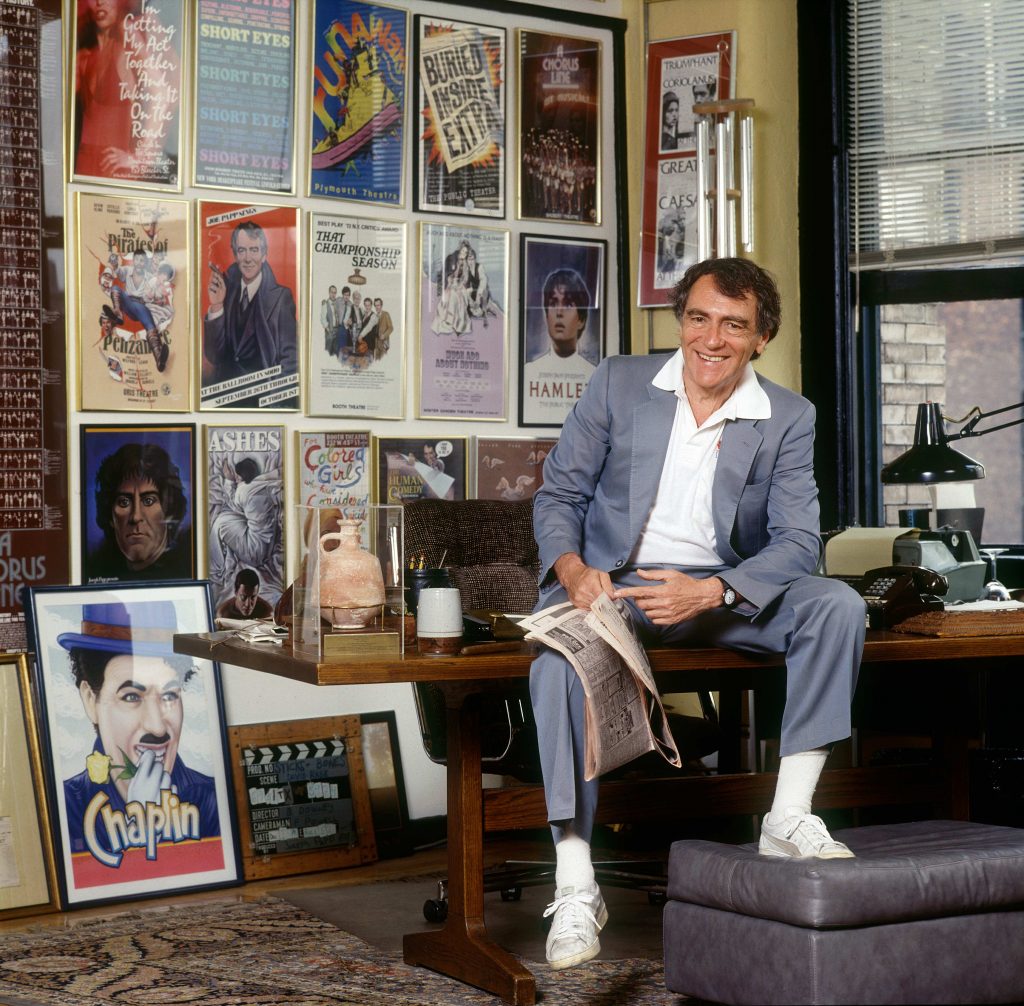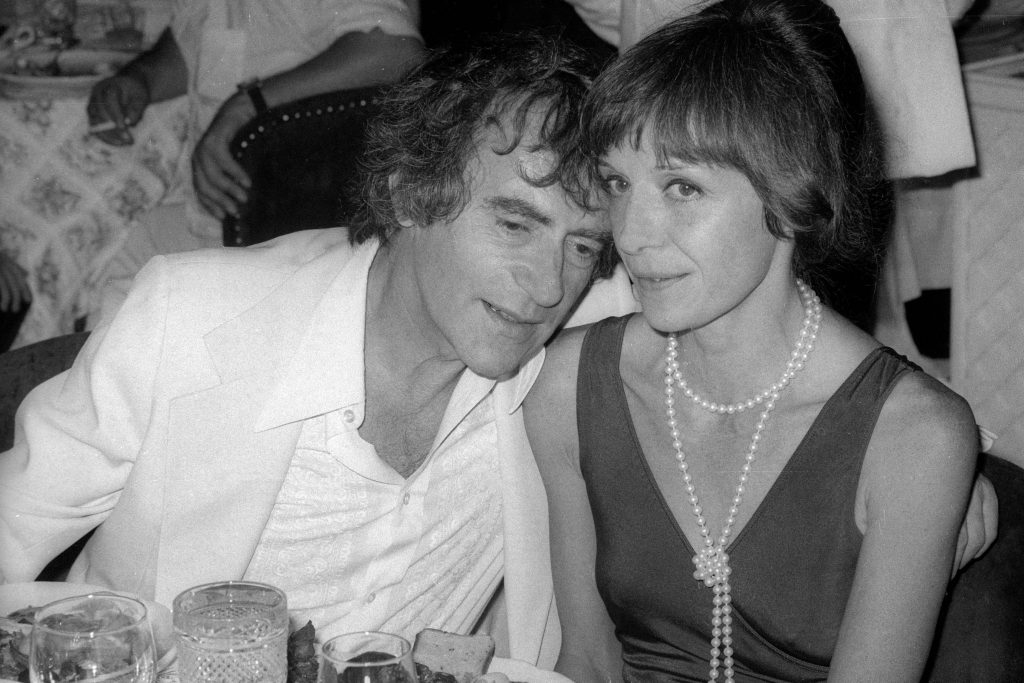About JOSEPH Papp
A Pragmatic Radical Touched with Public Genius

Joe Papp in his office at The Public Theater
Photo: © Estate of Barbra Walz
Joseph Papp (born Joseph Papirofsky; June 22, 1921 – October 31, 1991) was the American theatrical producer and director who founded the New York Shakespeare Festival with free Shakespeare in New York City’s parks, including the Delacorte Theater in Central Park, and The Public Theater, a complex of five stages in what had been the Astor Library Building in lower Manhattan. There, Papp created a year-round producing home to focus on new plays and musicals from voices not being heard. The Public Theater’s first production was Hair, which went on to be the first rock musical to play on Broadway.
Other examples of plays which began at The Public are the works of David Rabe, Ntozake Shange’s for colored girls who have considered suicide / when the rainbow is enuf, Charles Gordone’s No Place To Be Somebody, the first play by an African-American playwright to win the Pulitzer Prize, Michael Bennett’s Pulitzer prize–winning musical, A Chorus Line, and under its current Artistic Director, Oskar Eustis, The Public Theater production of Hamilton.
As she introduces a new generation to Joseph Papp in her memoir, Gail discusses the controversial issues that they dealt with (such as Joe’s front-page battle with Parks Commissioner Robert Moses to keep Shakespeare in the Park free, TV censorship and the 1980s political backlash against the arts) as well as a major conflict within the organization in the 1970s, all issues which resonate today. From her own role and working alongside Joseph Papp, Gail also reveals the endless variations of the theatrical process, looks at the improbable and totally unforeseeable making of huge hits – as well as how to work successfully with creative people, and reflects on how Joe helped to empower playwrights through his inspiring leadership of a unique theatrical organization.
Having grown up in an orthodox household in Williamsburg, Joe enjoyed a lifelong passion for Jewish culture. Speaking Yiddish as a child, he believed, led him to an early appreciation of the musicality of Shakespeare’s language, as Gail Merrifield Papp recounts in her coming memoir, Public/Private.
And Joe knew he had found the right home for The Public Theater when he learned that the building on Astor Place had been the home during WWII of the Hebrew Immigrant Aid Society (HIAS), the organization that had helped so many Jewish refugees fleeing the Nazis. Joe’s love for Jewish theater and Yiddish traditions continues in the work of The Joseph Papp Yiddish Theater in Coral Gables, Florida, of which Gail is a founding board member.

Joe and Gail in 1978 Photo: Adam Scully/PHOTOlink/MediaPunch
“While memory holds a seat”
Theater doesn’t exist independently of life. In my world, there’s always a connection between the front page and the theater page.
There’s a very specific reference in Hamlet that I’ve always taken to heart and that is when Hamlet meets the Ghost of his father and the Ghost says, “Remember me.”
And Hamlet says, “While memory holds a seat in this distracted globe”—-that’s how long he’ll remember him.
Now that’s a triple metaphor.
“This distracted globe” was Shakespeare’s Globe Playhouse where all the distracted audiences gathered; the “distracted globe” was the world; and the “distracted globe” was Hamlet’s head, the more literal meaning of the line.
I believe in that: my head, the theater and the world. The interconnection has to be constant.

“While memory holds a seat”
